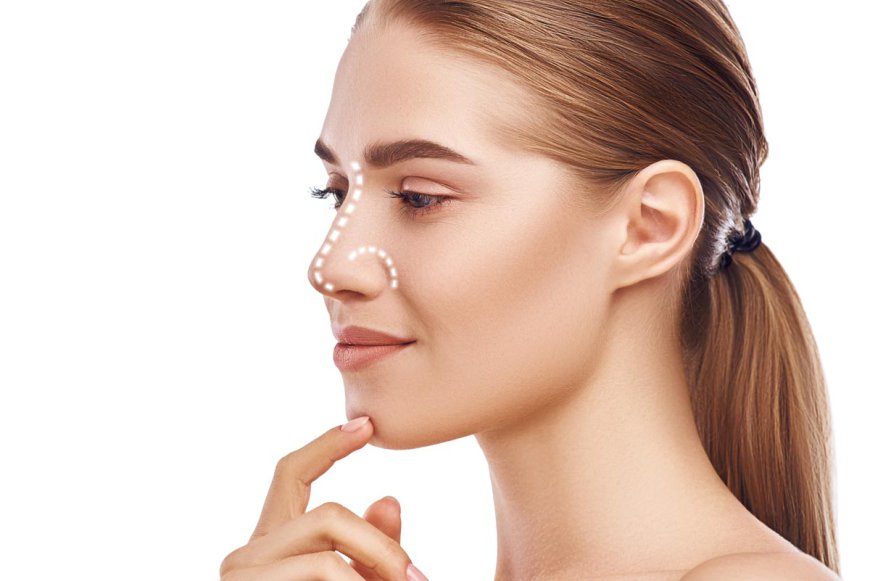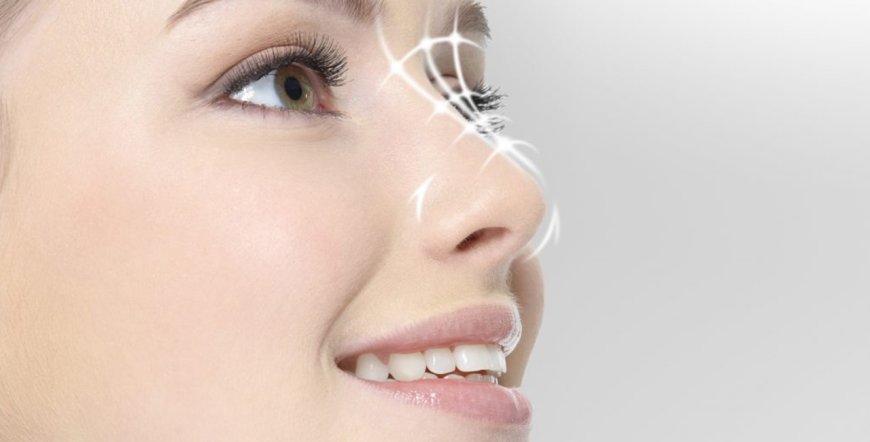The Ultimate Guide to Rhinoplasty Recovery in Dubai’s Climate
Recovering from rhinoplasty in Dubai? Discover expert tips on managing swelling, staying hydrated, and protecting your skin in Dubai's unique climate.
Rhinoplasty, often referred to as a nose job, is one of the most sought-after cosmetic procedures globally, and its popularity is steadily growing in Dubai. Rhinoplasty in Dubai offers the advantage of world-class surgeons, luxury medical facilities, and cutting-edge technology. However, Dubai’s unique climate—characterized by high temperatures, intense sunlight, and low humidity—requires special considerations during the recovery process. In this comprehensive guide, we’ll explore everything you need to know to ensure a smooth and successful recovery after rhinoplasty in Dubai(تجميل الأنف في دبي).

Table of Contents
- Understanding Rhinoplasty Recovery
- Preparing for Your Rhinoplasty in Dubai
- Immediate Post-Surgery Care
- Managing Swelling and Bruising
- Protecting Your Skin from Dubai’s Climate
- Hydration and Nutrition for Optimal Healing
- What to Avoid During Recovery
- When to Seek Medical Attention
- Returning to Normal Activities
- Conclusion
Understanding Rhinoplasty Recovery
Recovery from rhinoplasty is a gradual process that can take several weeks to a few months. While the initial swelling and bruising typically subside within the first two weeks, it can take up to a year for the final results to fully emerge. In Dubai’s climate, managing heat exposure and staying hydrated play crucial roles in promoting faster healing.
Preparing for Your Rhinoplasty in Dubai
Choose the Right Surgeon
Selecting an experienced and board-certified surgeon in Dubai is essential. Look for someone who understands the nuances of performing rhinoplasty in a hot, arid climate.
Pre-Surgery Checklist
- Schedule surgery during cooler months if possible (November to March).
- Arrange for transportation and aftercare assistance.
- Stock up on essential recovery supplies, including cooling gel packs, saline spray, and medical-grade sunscreen.
Immediate Post-Surgery Care
First 24 to 48 Hours
During the initial recovery phase, you’ll need to rest with your head elevated to minimize swelling. Apply cold compresses carefully around the eyes to reduce bruising. Avoid direct sunlight, as the heat can increase swelling and discomfort.
Medications and Pain Management
Follow your surgeon’s instructions for prescribed medications, including pain relievers and antibiotics. Avoid anti-inflammatory drugs like ibuprofen unless approved, as they can increase bruising.
Managing Swelling and Bruising
Swelling is a normal part of rhinoplasty recovery, but Dubai’s climate can exacerbate it. Here are some tips to manage it effectively:
- Cold Compresses: Use for 10-minute intervals to reduce swelling.
- Stay Indoors: Avoid outdoor activities during peak heat hours (10 a.m. to 4 p.m.).
- Avoid Hot Showers: Stick to lukewarm water to prevent increased swelling.
Protecting Your Skin from Dubai’s Climate
Sun Protection
Direct sunlight can cause skin discoloration and prolonged swelling after rhinoplasty. Always use a high-SPF (50+) sunscreen specifically designed for sensitive skin. Wear a wide-brimmed hat and avoid sun exposure for the first few weeks.
Humidity and Air Conditioning
Low humidity and constant air conditioning in Dubai can dry out your skin. Use a humidifier at home to keep the air moist and apply a gentle, hydrating moisturizer to prevent dryness around the nose.
Hydration and Nutrition for Optimal Healing
Stay Hydrated
Dubai’s dry climate can lead to dehydration, which can slow down the healing process. Aim to drink at least 2-3 liters of water daily. Avoid caffeine and alcohol, as they can dehydrate you further.
Eat Nutrient-Dense Foods
Focus on a diet rich in vitamins C and A, zinc, and protein to promote faster tissue repair. Incorporate foods like citrus fruits, leafy greens, lean meats, and nuts into your meals.
What to Avoid During Recovery
- Exercise and Heavy Lifting: Avoid strenuous activities for at least four weeks.
- Blowing Your Nose: Refrain from blowing your nose for at least two weeks to avoid damaging delicate nasal structures.
- Smoking: Smoking can impede circulation and slow down healing. Avoid it entirely during the recovery period.
When to Seek Medical Attention
Monitor for signs of complications, such as:
- Persistent swelling or severe pain after the first week
- Unusual discharge or foul odor from the nose
- Fever above 38°C (100.4°F)
Contact your surgeon immediately if you experience any of these symptoms.
Returning to Normal Activities
Most patients can resume light activities, such as walking, after the first week. However, avoid high-intensity workouts and swimming for at least six weeks. Gradually ease back into your regular routine as advised by your surgeon.
Conclusion
Recovering from rhinoplasty in Dubai requires extra care due to the unique climate. By following the right precautions, maintaining hydration, and protecting your skin from the harsh sun, you can ensure a smooth and successful healing process. Always consult with your surgeon and adhere to their guidelines to achieve the best results.

 acerstone
acerstone 
